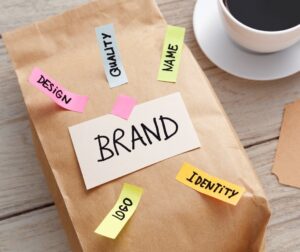Selling your products in major retail stores like CVS is a fantastic opportunity, but it comes with specific requirements and standards that must be met. CVS, one of the largest pharmacy and retail chains in the United States, maintains stringent supplier requirements to ensure the safety and satisfaction of its customers. In this comprehensive guide, we’ll dive deep into CVS supplier requirements and provide you with valuable insights on how to get your products retail-ready for CVS shelves.
Understanding CVS Supplier Requirements:
CVS has a reputation for upholding high standards when it comes to the products it stocks. To meet these standards and get your products into CVS stores, it’s essential to understand the key requirements:
1. Compliance is Key: CVS places a strong emphasis on regulatory compliance. Your products must meet all federal, state, and local regulations. Ensure that your products have the necessary certifications and adhere to quality and safety standards.
2. Packaging Perfection: CVS has strict packaging guidelines to ensure that products are well-presented and protected. Pay close attention to packaging design, labeling accuracy, and durability to meet these standards.
3. Quality Assurance: Quality assurance is non-negotiable. CVS demands consistently high product quality. Implement rigorous quality control processes to maintain product excellence.
4. Documentation and Transparency: Prepare and maintain thorough documentation related to your products, including safety data sheets, ingredient lists, and any other relevant information. Transparency is crucial when dealing with CVS.
5. Supplier Relationship: CVS values strong, long-term relationships with its suppliers. Commit to open communication, collaboration, and continuous improvement to build a mutually beneficial partnership.
6. Supply Chain Efficiency: CVS expects suppliers to maintain efficient supply chains, ensuring that products are consistently available to meet customer demand.
7. Environmental Responsibility: CVS is committed to sustainability. Consider how your products align with their environmental goals, including eco-friendly packaging and sourcing.
Meeting CVS Supplier Requirements:
Meeting CVS supplier requirements can be a complex process, but it’s essential for success in retail. Here are some steps to help you get your products retail-ready:
1. Comprehensive Research: Start by thoroughly researching CVS’s specific requirements for your product category. Understanding these guidelines is the first step in compliance.
2. Quality Control: Implement stringent quality control processes within your production facilities to ensure consistent product quality.
3. Documentation Management: Establish efficient systems for documenting compliance with all regulations and quality standards.
4. Collaborate with Experts: Consider partnering with experts in CVS sales agencies or brokers who have in-depth knowledge of CVS requirements and can guide you through the process.
5. Continuous Improvement: Commit to continuous improvement in all aspects of your product development, packaging, and quality control processes.
Conclusion:
Meeting CVS supplier requirements is a critical step in getting your products on CVS shelves. By understanding and adhering to these standards, you not only increase your chances of success with CVS but also enhance the overall quality and safety of your products. Remember that compliance is just the beginning; building strong relationships with CVS and continuously improving your offerings are key to thriving in the competitive world of retail.








